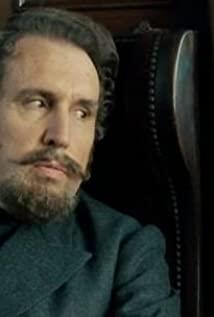Polanski came to shoot "I Complain", which seemed to be an ironic performance art. However, the craftsmanship is so good that the audience forgets even the irony, so only art is left.
Dreyfus's injustice of the century, after being told by Polanski, has actually become a story that has nothing to do with justice.
At the end of the nineteenth century, a Jew who had been hastily convicted by a decadent French army and a bunch of biased racists was exiled for years on false charges. And his mentor at the military academy worked for years to make the truth public, and even went to jail himself. How this sounds like a story of personal heroism going all out to give justice to his lover - how could Polanski be the one who could make the movie.
The director interspersed flashbacks from time to time, and the audience finally understood: this officer named Picard has been running for many years to create these waves, mostly because he is familiar with the media giants - Clemenceau and Zola, how is it that ordinary people can do whatever they want The gods up to hear? From the very beginning, what he got was not the script of a little person who attached great importance to feelings. And he used to be a military academy instructor actually hates Jews. His perseverance, perseverance, and ascetic quest is for the traitor who is at large, and France, which has been rotten from top to bottom.
So when the amnesty came, Picard said "righteously" that Dreyfus should not accept it, because the justice sentence is coming, and they have come a long way, how can they give up at this moment? He remembered that he was busy all the way, but he forgot that the person who had endured all the injustice had not seen his wife and children for many years. You, Picard, suffered for your beliefs, and you are almost happy; but Dreyfus, who is alone in despair day after day, why is he waiting?
Dreyfus accepted the amnesty and was reunited with his wife and children. And the rotten French military finally left in a hurry in the victory of the left. Picard, the man of justice, became the new general and sat in the bright and spacious office - how many times he had come for Dreyfus' injustice When I got here, I fought hard with iron evidence in my hand, but left in despair time and time again.
And this time, it was Dreyfus who walked in. He wanted to ask for another justice from the mentor who had been running for his freedom for many years: those years of exile should count towards his seniority, so he should get a higher military rank.
The answer is "no".
Picard even said with shame that he was able to become a general "thanks" to this unjust case of Dreyfus, but as a general, he really couldn't set a precedent for such special care, even if he knew that this way The compensation is actually quite fair.
There were tears in the eyes of the Jews, and they left in despair. From then on, teachers and students never saw each other again.
In fact, for the audience, this sad ending is reasonable, not even unexpected. Ever since Picard persuaded Dreyfus to refuse the pardon, his attitude could not have been clearer: I could give everything, even my life, for the well-ordered France in my heart, but your pain has nothing to do with me. To be more ruthless, complaining loudly for your freedom has made me a general after the Vientiane update, but as a general, I can make a special case for the Jews. What good is it for me?
I wondered if Dreyfus would remember his conversation with Instructor Picard in the corridors of the military academy years ago after that last conversation. Dreyfus asked his teacher if his Jewishness was driving down his grades, to which Picard replied calmly: "If you ask me if I like Jews, the answer is no; but if you ask me if it will Influence my judgment, then I assure you: no."
This second "no" is the reason why I have been running and complaining loudly over the years. And this first "no" is doomed that my accusations over the years have nothing to do with your suffering.
View more about An Officer and a Spy reviews










